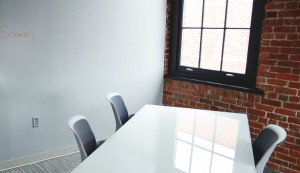Is Your Company’s Outdated Workspace Deterring Talent?

However, our patience with such bland workspaces is running out, and the average person’s willingness to accept a mediocre office is slowly, but surely, dwindling.
Today, it seems that many workers expect innovative, ergonomic, and employee-centered workspaces. As a result, many candidates these days consider the appeal of a company’s work environment before choosing to accept a job offer — or even apply in the first place. Research shows that work environment accounts for 25 percent of job satisfaction. Therefore, it makes sense that candidates will factor in their offices when choosing an employer.
Employers who choose to ignore the changing expectations of workers may find that their workplaces deter new candidates and even drive existing employees away. Employers should take honest looks around and ask themselves whether the office environment is inspiring and truly fit for purpose — or a bit dull, impractical, and even dysfunctional.
The Millennial Question
Is your workspace attractive to millennial talent, or is it outdated and unappealing in the eyes of young workers? Millennials are the largest generation in the workforce, which means that you could be alienating a major chunk of the talent supply if your office does not fit Gen. Y’s tastes.

Does your work environment offer these qualities? If not, it may not be in tune with the modern industrial spirit, and it is most likely deterring talent.
Millennials also tend to prefer working in urbanized locations with access to social and commercial facilities. They prefer to work in areas with strong public infrastructure, so they can use public transport or walk to work.
Is your workplace located in such an environment? Have you asked your employees as a whole where their preferred office location is? Businesses who listen to and act on this information will have an edge over the competition when it comes to attracting talent.
Moreover, millennials want to work in environments with which they can emotionally engage and in which they can socialize with colleagues. They also want their workspaces to support their health and well-being.
Take a look around your own work environment. Ask yourself whether your environment really meets these needs. Do you have dedicated team spaces, plenty of break-out space, interruption-free concentration spaces, quiet relaxation spaces, etc.? These are just a few of the signs of an environment that supports this aspects of a millennial’s workplace expectations.
If you have looked at your workplace and you can’t honestly say it meets the workplace preferences of millennials, there is a very strong likelihood that your workplace is out of date and deterring talent.

